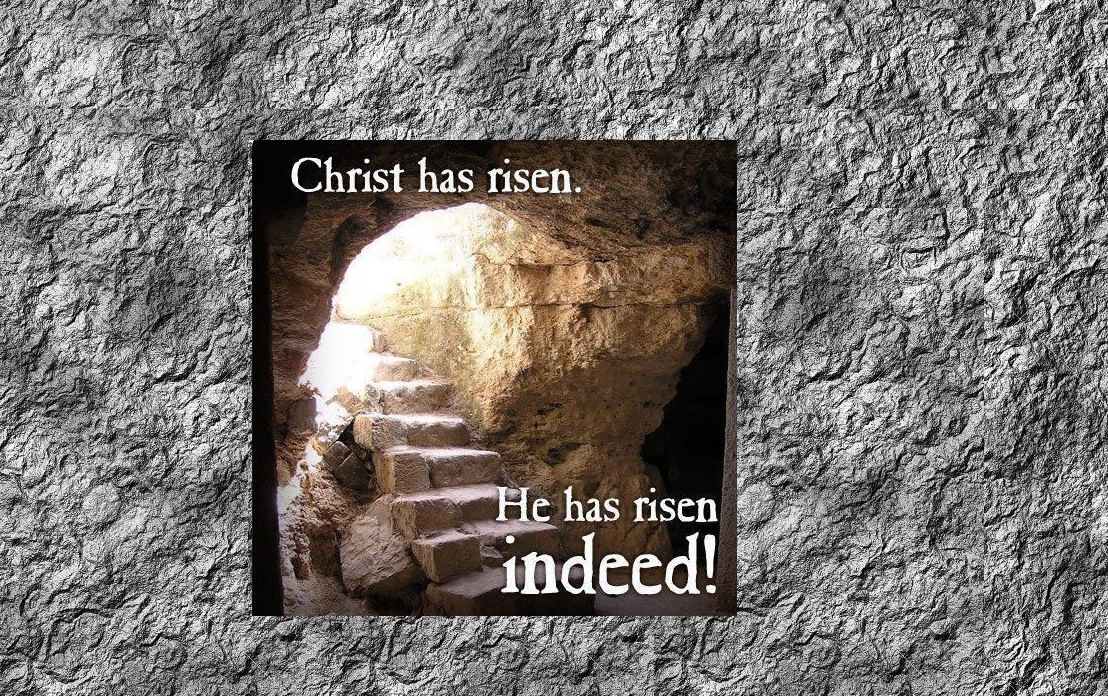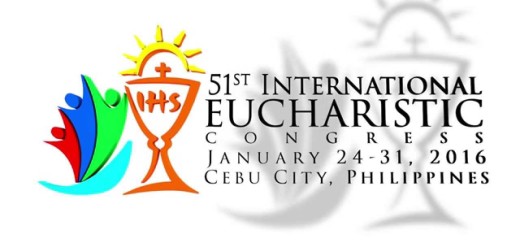HE IS RISEN. HE IS RISEN, INDEED!


Isaac Gomes, Asso. Editor, Church Citizens' Voice
writes on the significance of Easter.
A traditional Easter greeting in the Western church is the exclamation “He is risen!” and the response is “He is risen, indeed!” The words are sometimes accompanied by the exchange of three kisses on alternate cheeks, depending on the church. In the Orthodox and Catholic churches, the greeting is called the “Paschal greeting” and is a very old custom.
The greeting is based on Luke 24:34. At first, the greeting was more common in Eastern and Byzantine liturgies than in the Western church. There is a tradition in the Eastern Orthodox Church that the saying was made popular by Mary Magdalene (who was the first to see the Resurrected Christ) when she supposedly addressed Emperor Tiberius in Rome with the words “Christ is risen.”
The book titled “The Case for the Resurrection of Jesus”, by Gary R. Habermas, Michael R. Licona, Kregel Publications, 2004, prepares us to make a compelling argument for the historicity of Christ's resurrection, even to those who do not accept the Bible as divinely inspired.
The resurrection of Christ gives us hope for salvation, our own resurrection and eternal life. This salvation can be attained here on earth itself. For by conquering death, Christ reinforces the point that we can live our lives well and certainly not death and after life. Salvation means overcoming agonising poverty and injustice. According to Dr Ella Bhatt, cooperative organiser, noted social activist and Gandhian, who founded the Self-Employed Women's Association of India “Poverty is violence perpetuated with the consent of society – a society that is silent or looks the other way in the face of poverty. Poverty strips away a person’s dignity, humanity, it corrodes the human spirit. There is no justification for poverty in India.”
Salvation means the Laity (which constitutes ninety-nine per cent of the Church, according to Bishop Stephen Lepcha, Bishop of Darjeeling and Chairman of Bengal-Sikkim Regional Laity Commission) shedding its tag “sleeping giants”, waking up from its comfort zone and taking part in Advocacy for Justice, especially for the marginalised, and for protection of our Fundamental Rights guaranteed by our Constitution.
The miracle of five loaves and two fish symbolises Christ’s concern for the marginalised – those on the periphery of the society. He always ensured that the masses who lapped up all his words, never went home hungry. This is why Jesus commanded Peter “Feed my sheep” (John 21:15-17). Though Christians in India constitute only 2.3% of the population, there are many who go hungry. Instead of getting caught in land scams and Mega Church Projects worth Rs 100 crore, if Church Authorities undertake a diocese-wise mapping of the impoverished and the undernourished, they would do yeoman service in providing need-based succour to the poor by making good use of the Rs 100-crore budgets. Following this command of Christ to "Feed my sheep", Jesuit Father Irudya Jothi, Director of Udayani Kolkata, along with more than 500 organizations, spearheaded the Right to Food Campaign in Delhi, and was instrumental behind the legislation of National Food Security Act 2013. Because of this Act and after more than two years of persistent campaign by church-based and other voluntary organizations, West Bengal Government launched a scheme to ensure food security to 77 million of its poor people. The program, announced on 27 January 2016, under the National Food Security Act, promises to provide rice and wheat at two rupees a kilogram, at least one-tenth of the market price.
Something similar should be devised by our Laity in each diocese regarding Health Care, on the lines of Modi Care (Health Insurance announced in the Budget 2018). Conventional Health Insurance schemes are very costly and has doubled this year. Very few Christians, except the DINKs (Double Income No Kids) can afford Cashless Health Insurance Schemes at the current market rate. The church talks of Pastoral Plans with great fanfare but on ground hardly any concrete projects (on Education, Health, Housing and Women & Child Welfare) are visible. Most of the resolutions are purely academic and illusory and leave much to be desired in terms of impact on the community.
The Salvation of Easter also means freedom from ignorance of our Fundamental Rights and Duties. Rights and duties are two faces of the same coin. It is little wonder therefore that Bishop Stephen Lepcha of Darjeeling in his capacity as Chairman of Bengal-Sikkim Regional Laity Commission and Bishop Salvadore Lobo of Baruipur as the CBCI National Chairman of Social Communications, recently stressed on the imperative need for the Laity to know our Constitution. This has become all the more imperative in the light of the on-going storm over the alleged misuse of personal data amid the unfolding of Facebook-Cambridge Analytica (Parent company: Strategic Communication Laboratories (SCL) controversy which alleged an attempt to manipulate voters' behaviour by harvesting data from 50 million Facebook users. Readers must realise this is not storm in a tea cup, but might result into a Tsunami. Therefore, our Lay Leaders must rise to the occasion and take up the Study of our Constitution and its dissemination in modular form, across parishes in India.
The duty to study the Constitution applies to our Church authorities too, for many a time they cross the Laxman Rekha set by our constitution by taking shelter under the "Canon Law" as was done by Cardinal Alencherry at Kerala High Court recently. Salvation also means doing away with oral hire and fire, in our church institutions. Many church institutes resort to this malpractice and abysmal pay to the members of their staff. In Kolkata there are several church-run institutes which pay teachers on no-work-no-pay basis. Even Teachers who are on payroll are paid a paltry salary in Rs 5000-6000/- range, without any Medical and Provident Fund benefits. According to CBCI statistics, church-runs institutes control twenty-five per cent stake in the Education and Health Sectors. Therefore, it is time our church-run institutes were more transparent in financial matters and paid their staff a humane salary instead of making them victims of Subsistence Theory of Wage or "iron law" of wage which do not even fulfil their basic needs. The Church is totally silent on these issues of oral hire and fire/ under-pay when it eulogises its Archdiocesan/Diocesan Pastoral Plan on Education.

In case of Christian Minority Institutions (schools and colleges) which wear the "Minority Tag" and get tax and other sops, it is high time they tapped into their Reserve Funds to meet differential costs instead of passing on all the burden on the parents. Last week there was a raucous at an elite missionary school in Park Street Kolkata. The school had hiked its fees by thirty-five percent. Understandably, parents especially those with more than one child in the school, were agitated as the annual salary increase in their places of work is only ten per cent or less on an average. Our Missionary schools and colleges have a lot of money in their Reserve Funds (which is why they do not show their accounts). Instead of passing all the burden of teachers' salary hike and other school expenses, they should dip into their Reserve Funds which most elite Christian minority schools have been building up for decades. Certainly parents cannot be made guinea pigs and Education cannot be allowed to be a Business Enterprise. These Missionary Minority schools and colleges, used to get Dearness Allowance (DA) from their respective state governments. But in West Bengal, these institutes have refused to avail of this facility, because they feared the Government would depute its representative on the Managing Committee and in the process infringe upon their exclusive Minority Status. This is hogwash as our Constitution guarantees exclusive rights to institutes which have obtained minority status certificate Article 30 (1) of the Constitution and Section 2(g) of the National Commission for Minority Educational Institutions Act (NCMEI) 2004 (2 of 2005) as amended by the NCMEI (Amendment Act 2006) Act. So this right is not so transient that it would be taken away if these institutes receive financial aid from the respective state governments. NCMEI Act is very clear on this and says "But if the institution is receiving any financial aid from the State then Sub-Article (2) of Article 29 of Constitution obligates the management to admit non-minority students to a reasonable extent." The fact is though the Minority Institution Certificate is given to admit mainly students of its own community, reality check has shown that most Christian Minority Institutes in Kolkata, on an average have only a maximum of ten per cent students of its own community and the balance ninety per cent comprises non-minority students most of whom pay up whatever the institute managements ask for. The reason they do not want any government nominee on the managing committee is that they do not want any scrutiny of their accounts. If they are transparent in their financial matters, then what is the fear of government scrutiny or independent audit? There is an English-medium Higher Secondary School (up to Class XII) on Park Street itself, which raises its annual fees between Rs 50/- and 100/- only! The school authorities also arrange for virtually free-studentship for the really needy ones, from its Trust Funds.
The Gujarat High Court on Wednesday 27th December 2017 upheld the Gujarat Self-Financed Schools (Regulation of Fees) Act, 2017 that was passed by the state legislative assembly in March and ruled that private schools can’t engage in profiteering. A division bench comprising chief justice R. Subhash Reddy and justice V.M. Pancholi had in August reserved its order on a number of petitions filed by hundreds of self-financed schools that challenged the state government’s move to regulate fees through the Act. The division bench rejected all petitions challenging the state Act and said that it was within the state government’s powers to regulate fee structure for self-financed schools. It ordered the implementation of the Act from 2018. The Act prescribes an upper limit on annual fees of Rs15,000, Rs25,000 and Rs27,000 on primary, middle and high school education respectively.
The High Court bench rejected the contention of the Central Board of Secondary Education (CBSE) and Indian Certificate of Secondary Education (ICSE)-affiliated schools that the state government cannot regulate them. The court also rejected similar petitions by education institutions managed by the minorities (both religious and linguistic) that sought exemption from the state law. As this is a High Court judgement, it may be replicated in case of other states, and West Bengal, where there more than are 500 ICSE and CBSE schools, is no exception.
It is high time each Archdiocese/Diocese set up a Crisis Management Cell. It has been observed there is an instinctive attempt to sweep all grievances under the carpet. This will inevitably result in volcanic erruption as it has happened in Ernakulam Archdiocese (a la Cardinal George Alencherry).
It is also time each Archdiocese/Diocese appointed a paid lay spokesperson, who can face the National and Local Media, on issues that impact our community. He/she must be a person of integrity, adept in languages including the local language and should not be a dead-pan like our spokespersons who look pathetic on the national media.

Easter also calls upon our Lay Associations to introspect on how transparent and accountable they are to their members! Most of them are not. They, for example the Catholic Association of Bengal, even refuse to show their audited accounts to their members, as if they were "Classified Information!"

















A report by KINSUK BASU Belur in today's 5th April Telegraph is very interesting and highly encouraging in the field of education. It is a lesson the high-nosed principals of our Missionary Colleges (as well as schools) learned from Ramakrishna Mission, particularly the humility of the Swamijis there. Just look at the teacher:student ratio – astounding 1:11 vis-a-vis our Missionary Institutes' average 1:60!
Calcutta's only college among the nation's top 10 attributes its success to being able to create an atmosphere that encourages students to complain about what they feel is wrong and the institution's single- minded focus on academics.
Every individual complaint is taken seriously and before blaming the student the institution tries to find out where it has gone wrong, said Swami Shastrajnananda, the principal of Ramakrishna Mission Vidyamandira, Belur.
A list prepared by the human resource development ministry has ranked the 76- year- old college ninth among all colleges in India — a feat which senior monks of the Ramakrishna Math and Mission said was the result of years of relentless thrust on all forms of discipline, academic or otherwise.
" For us, the monks, this institution is a temple. Students are our gods. If they fail, it's our failure. So any student can walk in with a grievance and speak to any one of us at any point of time. It's our duty to give him patient hearing," the principal told Metro . "At Vidyamandira, we don't believe that those who didn't make it to the list are anyway lesser. There is a lesson or two to be learnt from all these institutions." Senior monks said that ahead of a candidate's admission, a student and his parents are clearly briefed about the college's ethics. They are told that there is no scope for any political activity and hostel life means basic food, sharing rooms with others and attending early-morning prayers.
" If a student appears to be skipping classes because he is unable to follow lectures, he is immediately sent to a referral tutorial system, where individual care is taken to ensure that his shortcomings are addressed, " said a senior monk of the college. " There is a mentoring system and teachers are accountable for the performance of the students." Vidyamandira was started as an Intermediate Arts College in 1941 in keeping with Swami Vivekananda's idea of comprehensive education and was upgraded to a three-year degree college in 1960. It was granted autonomy in 2010.
With 670 students on its rolls, the residential college offers undergraduate courses in 14 subjects, postgraduate courses in five subjects and PhD in five subjects. The teacher- student ratio is 1:11.
Senior monks from the Ramakrishna Math and Mission, who are at the helm of affairs, said Vidyamandira had successfully put in place a few regulations.
Students, for instance, are not allowed to carry smartphones to the college. Internet kiosks inside the college are open from 7am to 9 pm. A software tracks attendance of each student and frequent absentees are asked to explain their conduct to vice-principal Swami Ekachittananda.
Results are published within a month of the exams. Before the publication, the standing committee of the academic council scans the results of each student.
"In each semester, there is an open house every two months. Students interact with teachers and voice their grievances in unambiguous terms," said Principal Swami Shastrajnananda.
Readers will see a definite connection with my earlier article captioned "He is risen. He is risen Indeed" in mattersindia.com and Church Citizens' Voice.
A report in today's Telegraph by KINSUK BASU Belur is very interesting and highly encouraging in the field of education. It is a lesson the high-nosed principals of our Missionary Colleges (as well as schools) learned from Ramakrishna Mission, particularly the humility of the Swamijis there. Just look at the teacher:student ratio – astounding 1:11 vis-a-vis our Missionary Institutes' average 1:60!
Calcutta's only college among the nation's top 10 attributes its success to being able to create an atmosphere that encourages students to complain about what they feel is wrong and the institution's single- minded focus on academics.
Every individual complaint is taken seriously and before blaming the student the institution tries to find out where it has gone wrong, said Swami Shastrajnananda, the principal of Ramakrishna Mission Vidyamandira, Belur.
A list prepared by the human resource development ministry has ranked the 76- year- old college ninth among all colleges in India — a feat which senior monks of the Ramakrishna Math and Mission said was the result of years of relentless thrust on all forms of discipline, academic or otherwise.
" For us, the monks, this institution is a temple. Students are our gods. If they fail, it's our failure. So any student can walk in with a grievance and speak to any one of us at any point of time. It's our duty to give him patient hearing," the principal told Metro . "At Vidyamandira, we don't believe that those who didn't make it to the list are anyway lesser. There is a lesson or two to be learnt from all these institutions." Senior monks said that ahead of a candidate's admission, a student and his parents are clearly briefed about the college's ethics. They are told that there is no scope for any political activity and hostel life means basic food, sharing rooms with others and attending early- morning prayers.
" If a student appears to be skipping classes because he is unable to follow lectures, he is immediately sent to a referral tutorial system, where individual care is taken to ensure that his shortcomings are addressed, " said a senior monk of the college. " There is a mentoring system and teachers are accountable for the performance of the students." Vidyamandira was started as an Intermediate Arts College in 1941 in keeping with Swami Vivekananda's idea of comprehensive education and was upgraded to a three-year degree college in 1960. It was granted autonomy in 2010.
With 670 students on its rolls, the residential college offers undergraduate courses in 14 subjects, postgraduate courses in five subjects and PhD in five subjects. The teacher- student ratio is 1:11.
Senior monks from the Ramakrishna Math and Mission, who are at the helm of affairs, said Vidyamandira had successfully put in place a few regulations.
Students, for instance, are not allowed to carry smartphones to the college. Internet kiosks inside the college are open from 7am to 9 pm. A software tracks attendance of each student and frequent absentees are asked to explain their conduct to vice- principal Swami Ekachittananda.
Results are published within a month of the exams. Before the publication, the standing committee of the academic council scans the results of each student.
"In each semester, there is an open house every two months. Students interact with teachers and voice their grievances in unambiguous terms," said Principal Swami Shastrajnananda.
Readers will see a definite connection with my earlier article captioned "He is risen. He is risen Indeed" in mattersindia.com and Church Citizens' Voice.
One has to just go deep into the malpractices rampant in these institutions. Elite missionary schools of Kolkata in the vicinity of Park Street and Syed Amir Ali Lane / Darga Road are charging anything between Rs 80.000/- and Rs 40,000/- for admissions to Class XI. They just are making misuse of the Minority Institute Tag. The irony or biggest joke of is that even if a student has studied from Class I to X of these institutes, he/she has still to pay Admission Fee (minimum Rs 20,000) for getting admitted to Class XI. To make the corruption fool-proof, parents have to fill up two columns in the Class XI Admission Form. One the year when the student was ADMITTED in the school. The other the date when the student was WITHDRAWN from the school. I have been given to understand that the online form does not allow the parents to proceed, till they have filled in the year of WITHDRAWAL even though they have actually at no point of time withdrawn their ward. One school which sheds crocodile tears for Christian minority students, even asks for 6-months' fee in advance without bothering where middle-class or poor parents will get all the money in one shot. Really ingenious, all in the name of God! No wonder these schools do not want any government nominees on the Management Committee!
Isaacji, we expect similar explorative explosives from you. A good article….. I reserve the clause 'one of the best', because I know the best series is yet to come from you. Thank you so much.
Dear Josephji,
Thank you for your generous feedback. I just placed the facts for Common Good and tried to separate cheese from the chalk or hypocrisy from ground reality.
Isaac Gomes' report is a really an eye-opener into the business going on in West Bengal particularly the elite missionary schools in Kolkata. The school and college authorities are hoodwinking the faithful and the masses in the name of protecting minority rights. It is broad daylight robbery.
No wonder the Archbishop of Calcutta and the Bishop of Church of North India, Calcutta opted out of the Self-regulatory Committee set up by West Bengal Chief Minister Mamata Banerjee in June 2017 to keep tab on fee hike by private schools, which also includes Christian Missionary Schools.
Francis Mondal Kolkata
Dear Sir,
After reading the article I am reminded what Christ said : "I AM THE RESURRECTION AND LIFE. DO YOU BELIEVE THIS ?"
Jesus' question has remained unresponsive and unanswered when Christian Institutions and Leaders make all these events as traditional rituals rather than meaning it through their lives and action.
Bengal missions are far behind. The system in Govt and Church are defiled by the mind of its foolish people driven by foolish politics.
Jesus alone can touch lives by the same power that raised him from the death. Amen.
Dipak Chatterjee
Chennai
Very, very informative and instructive piece of writing, Isaac. God bless, and keep up the good work and I want to wish you very Happy Easter even when a more forceful inner voice urges me to say: "Sorry Easter" since TRUTH stands crucified and buried, here in the Zeromalabar Church in Ernakulam.
James Kottoor